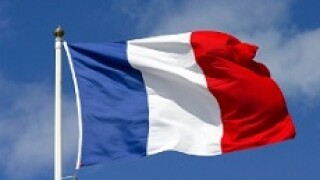France
-
French supermarket group Carrefour returned to the equity-linked market on Thursday to sell a $500m equity-neutral convertible bond due in January 2024.
-
French engineering consultancy Altran has set the term on its €750m rights issue to finance its acquisition of US global design and engineering company Aricent.
-
French food company Danone received a strong response on Monday when it sold its inaugural social bond, the first from a corporate issuer since the social bond principles were set out by the International Capital Market Association in June 2017.
-
The power of equity capital markets to solve complex corporate finance problems elegantly was vividly demonstrated on Tuesday night when JP Morgan and Crédit Agricole led a €2bn sale of Vivendi’s whole 27% stake in Ubisoft, the video game developer, writes Sam Kerr.
-
Two new SRI corporate bonds were priced on Monday, but with very different results. Iberdrola’s green hybrid bond failed to tighten from initial price thoughts, while Danone’s debut social bond had to pay just 2bp of premium.
-
This week's funding scorecard looks at the process French agencies have made in their funding so far in 2018.
-
Senior executives of the International Finance Corp and Amundi will gather in Paris on Friday afternoon for the official signing of Amundi Planet — Emerging Green One: the innovative fund the organisations set up to invest in green bonds issued by emerging market banks. The fund is already closed and listed on the Luxembourg Stock Exchange.
-
-
Guarantors: Kingdom of Belgium (51%), Republic of France (46%) and Grand Duchy of Luxembourg (3%)
-
The sterling SSA market snapped back into life with a flurry of new deals after a quiet few weeks — although bankers lamented that the issuance door may have closed just as quickly as it opened.
-
The widening of the dollar Libor/Overnight Indexed Swap (OIS) spread may be one of the biggest talking points in bond markets but it is wrenching open funding opportunities for public sector borrowers. The accompanying widening in dollar swap spreads led two issuers to break new issue records, writes Craig McGlashan.
-
Sanofi, the French pharmaceutical company, this week priced the largest European corporate bond deal of 2018 — an €8bn six-tranche deal. The company used only European banks as global co-ordinators for the sale, as the euro market proved that it is a viable market for jumbo financings.









